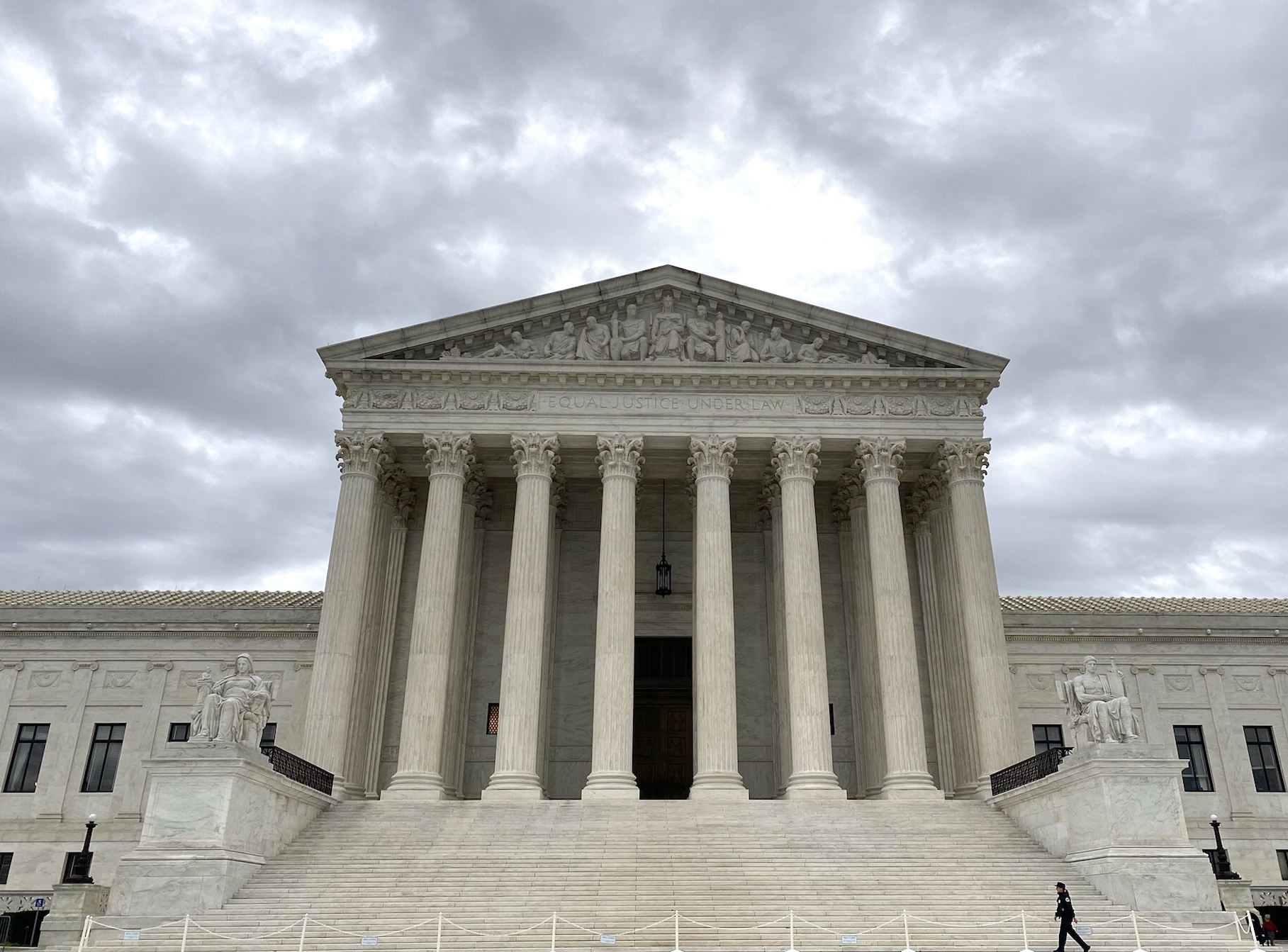SCOTUS NEWS
Justices take major Florida and Texas social media cases

on Sep 29, 2023 at 9:48 am

The Supreme Court on Friday agreed to weigh in on the constitutionality of controversial laws in Texas and Florida that would regulate how large social media companies like Facebook and X (formerly known as Twitter) control content posted on their sites. The laws were enacted in 2021 in response to legislators’ beliefs that the companies were censoring their users, particularly those with conservative views; the companies contend that the laws violate their First Amendment rights.
The announcement that the justices had granted review in Moody v. NetChoice and NetChoice v. Paxton came as part of a list of orders from the justices’ Sept. 26 conference, the first conference since late June in which the justices had considered new cases to add to their docket for the 2023-24 term. The justices granted review on Friday in a total of 12 cases; the remaining 10 cases will be covered in a separate story.
The Texas and Florida legislatures passed the laws at the center of the disputes in 2021. The Texas law, known as H.B. 20, bars social-media platforms with at least 50 million active users from blocking, removing, or “demonetizing” content based on the users’ views. The Florida law, known as S.B. 7072 or the Stop Social Media Censorship Act, prohibits social-media companies from banning political candidates and “journalistic enterprises.”
Technology companies went to federal court in Texas and Florida to challenge the laws, arguing (among other things) that the laws violate their First Amendment right to control what speech appears on their platform. The justices put the Texas law on hold last year while the challenges to the law continued in the lower courts. In an opinion joined by Justices Clarence Thomas and Neil Gorsuch, Justice Samuel Alito suggested that the court did not need to intervene yet. Justice Elena Kagan also indicated, without any additional explanation, that she would have allowed the law to go into effect.
In September 2022, the U.S. Court of Appeals for the 5th Circuit ruled for Texas and upheld the law. That prompted the tech companies to return to the Supreme Court, asking the justices to weigh in. Texas agreed that the court should grant review, and it urged the justices to consider both the Texas law and the Florida law at the same time.
Florida came to the Supreme Court last fall, asking the justices to weigh in after the U.S. Court of Appeals for the 11th Circuit blocked the state from enforcing most of the law. In January, the justices asked the Biden administration for its views on whether to take up the disputes.
In a brief filed in August, U.S. Solicitor General Elizabeth Prelogar recommended that the court take up two questions presented by the cases: whether provisions in the Texas and Florida laws that regulate tech companies’ ability to remove, edit, or arrange the content that appears on their platforms violate the First Amendment, as well as whether provisions that require tech companies to explain their decisions to remove or edit specific content violate the First Amendment.
Prelogar urged the justices to strike down both sets of requirements, but she told the justices that there is no need for them to weigh in on two other aspects of the dispute: the tech companies’ challenge to provisions in the Texas and Florida laws imposing general disclosure requirements on social-media platforms, and their argument that the laws were enacted to target large tech companies because of their decisions regarding conservative content on their sites. Among other things, she explained, both of the courts of appeals rejected these arguments, so there is no division among the lower courts on this question – one of the criteria that the justices consider when deciding whether to grant review.
In the order list issued on Friday morning, the justices followed Prelogar’s recommendation to take up the first two questions presented by the cases, but not the two other issues in the dispute. The court likely will hear argument early next year. The dispute is the second one on the court’s docket involving social media. In April, the justices agreed to decide whether public officials are acting as government officials, and therefore can violate the First Amendment, when they block people on their personal social media accounts. The court is slated to hear argument in two cases presenting that question, O’Connor-Ratliff v. Garnier and Lindke v. Freed, on Oct. 31.
The justices are also currently considering, but have not yet acted on, a request from the Biden administration to temporarily block an order by a federal judge in Louisiana that limited communications between the White House and several other government agencies with social media platforms about their content-moderation policies. U.S. District Judge Terry Doughty ruled that the federal government had “apparently engaged in a massive effort to suppress disfavored conservative speech.” After a federal appeals court agreed with Doughty’s conclusion, although it narrowed the scope of his order, the Biden administration asked the Supreme Court to intervene.
Additional orders from the Sept. 26 conference are expected on Monday, Oct. 2, at 9:30 a.m.
This article was originally published at Howe on the Court.


